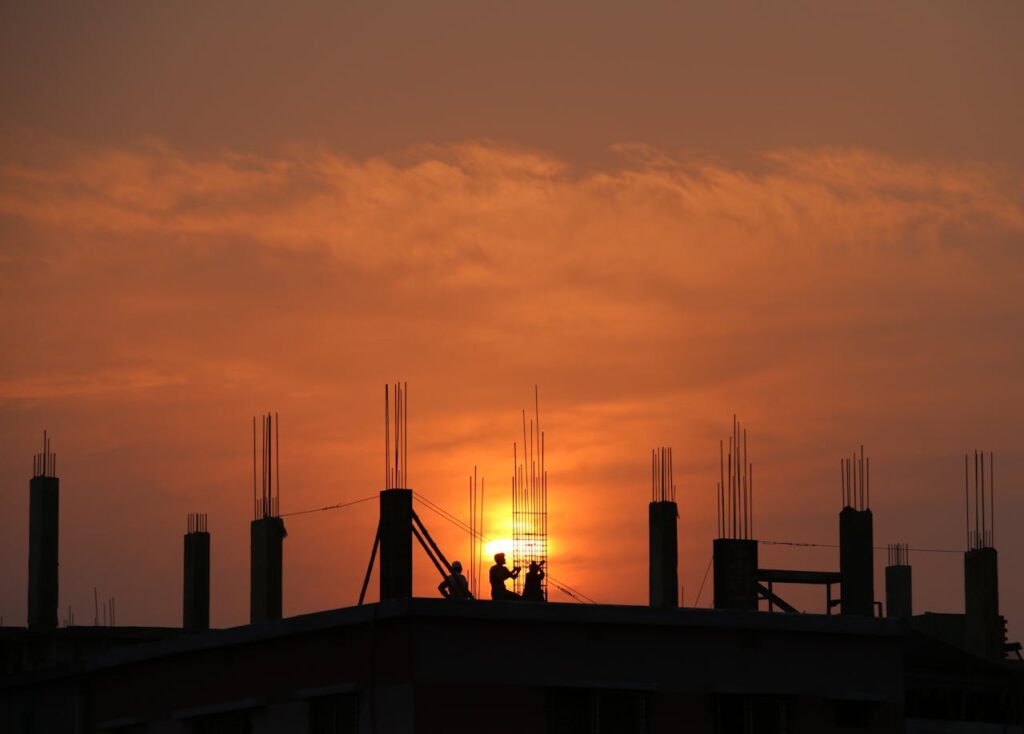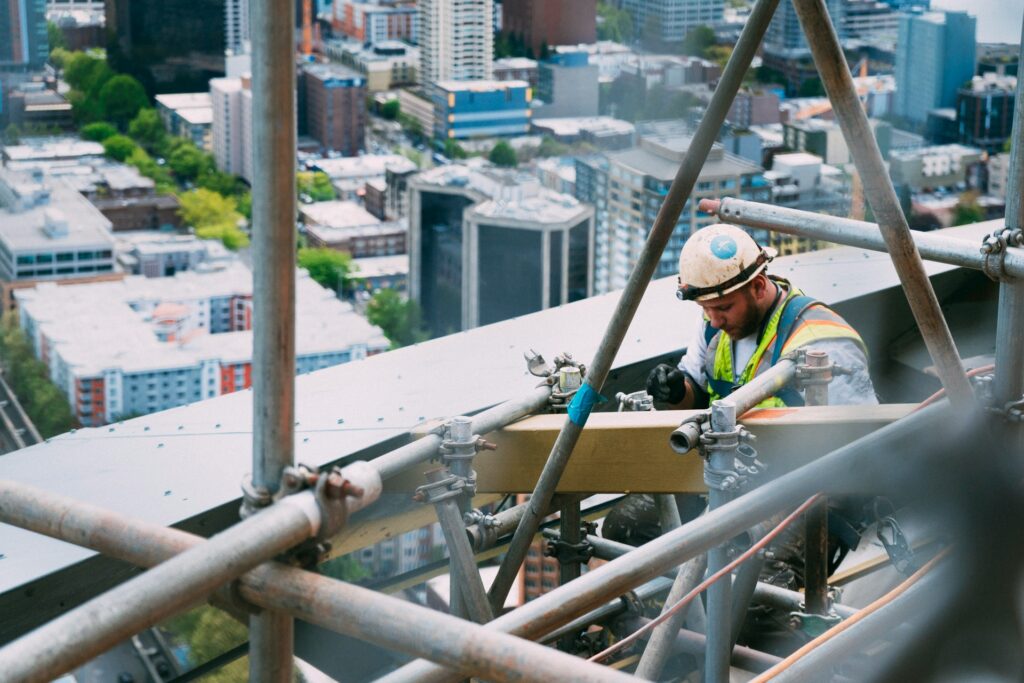Suspending Construction Works for Non-Payment: What To Do

Construction contracts are famous for their complexity, not least because of the multiple parties in the chain required to complete any given project.
Disputes between properties owners, contractors, and subcontractors are commonplace. Often, such conflicts can result in a subcontractor being refused payment by the main contractor.
As a subcontractor, understanding whether you could or should legally stop work is difficult — particularly if the original contract does not contain any dispute management and resolution provisions.
However, there is legislation that fills this void and can protect a subcontractor if they wish to stop work due to non-payment.
If you’re a subcontractor who wants to cease work due to non-payment, following the correct procedure laid out in the legislation is crucial to prevent losing rights at law (and incurring costs) even if the contractor’s refusal to pay is illegitimate.
Can You Suspend Construction Work If You’re Not Being Paid?
In theory, subcontractors have the right to down tools and stop work due to non-payment. But in practice, the situation is often more complicated.
As a subcontractor, you may wish to refuse to carry on working because the contractor has breached a term of the contract or you’re simply not being paid for the work you have completed.
However, a contractor’s refusal to pay may be legitimate as far as they’re concerned.
Many contracts allow for work to be suspended in the event of a dispute. Often until the matter is resolved to the mutual satisfaction of both parties.
The first place to look for guidance regarding a work stoppage is the contract itself. Many contracts anticipate potential disputes and provide a framework for action.
If the contract is silent on dispute resolution, there are laws to protect the subcontractor if they suspend work due to non-payment or other situations.
The ability to cease work is referred to as the right of suspension. There are specific protocols that you need to follow to suspend work legally.
What is the Right of Suspension in Construction Contracts?
Broadly, the law anticipates disputes between contractors and subcontractors. Under circumstances where the construction contract remains silent, legislation protects the subcontractor with a right of suspension.
Under certain circumstances, the legislation may even allow subcontractors to receive compensation for damages caused by the work suspension.
However, for the right of suspension to be valid, the subcontractor must follow designated protocols and suspend the work correctly.
Failure to do so might allow the contractor to bring a successful claim against the subcontractor for damages and legal costs — which may be significant.
Crucially, the contractor can file such a claim even if they wrongly withheld payments in the first instance and/or attempted to terminate the contract with the subcontractor.
Summary of Law Under Section 112
Legislation relevant to the right of suspension is contained in section 112 of the Housing Grants Construction and Regeneration Act 1996 (as updated by the Construction Act 2009.)
The law attempts to clarify the contractor and subcontractor’s rights in a dispute where the construction contract is silent.
Section 112 details the rights to suspend construction work and dictates procedures that subcontractors must follow.
If a subcontractor fails to adhere to the stated guidelines, the right to suspension may be invalidated.
Further, the suspending party — usually the subcontractor who hasn’t received payment — must satisfy additional conditions laid out in sections 110 and 111.
Here is a summary of the requirements of section 112 following the different subsections.
(1) Right of Suspension
A person owed money by a contractor who has failed to honour agreed payment terms has the right (without prejudice to any other right or remedy) to suspend the performance of some or all of obligations under the construction contract.
The main contractor liable for payment is referred to as ‘the party in default’.
(2) Period of Notice
Subcontractors may not exercise the right of suspension without giving the party in default a minimum of seven days’ notice before ceasing work.
(3) Payment in Full
The right to suspension ceases when the party in default makes full payment of outstanding sums.
(3A) Reasonable Costs and Expenses
Where the right of suspension is exercised correctly, the party in default is liable to pay reasonable costs and expenses incurred by the subcontractor.
(4) Suspension Does Not Count Toward Contractual Time Limits
If a subcontractor has suspended work legally, the time doesn’t count towards a contractually defined time limit. The time limit suspension applies to any work directly or indirectly affected by the subcontractor exercising their rights.
If the contract specifies a date when work (or stages of work) should be completed or rather than a time limit, the date must be adjusted accordingly when work begins again.
In simple terms, if you’re a subcontractor, you have the right to suspend work:
- If you have met the requirements in section 111
- You have given the contractor seven days’ notice
The period of suspension automatically ends when full payment is received. There may be additional monies payable to cover costs and expenses you incurred during the suspension period.
Crucially, the clock stops on contractual time periods, whether they are referred to by calendar date or duration.
The contractor cannot withhold further payments on the basis that work is completed late due to you legitimately exercising your legal right of suspension.
It is crucial to note that Section 112 of the Act does not apply to all construction projects. For example, it excludes developments with residential occupants.
Conclusion
As a subcontractor, it’s crucial to take expert legal advice before stopping work for a missing payment.
Even if you have the right to stop work because the main contractor has withheld money and is in breach of contract, if you do not give notice in the correct way then you could find yourself liable to pay damages to them for the stoppage.
Not only can professional legal advice protect you from this undesirable situation, but it can also ensure that you receive the full amount you are due without deductions.
The total amount due may also include additional costs incurred as a result of suspending the work because of non-payment.
The right to suspension is a powerful bargaining tool, but subcontractors should exercise it with caution.
Only after carefully analysing the situation and construction contract can it be determined whether suspending work is viable. Otherwise, it is possible to create more problems than you solve.
A mistake in this regard can prove very costly and sometimes fatal to the balance sheet of smaller subcontractors. Ironically, this consequence is typically far worse than the impact of a delayed ‘stage payment’ under the contract.
Helix Law’s expert team of construction law specialists have vast experience advising subcontractors on the appropriate course of action for non-payment scenarios. Only after thorough expert analysis of the construction contract, the commercial realities of the situation, and the legal right of suspension can you determine the best course of action.



